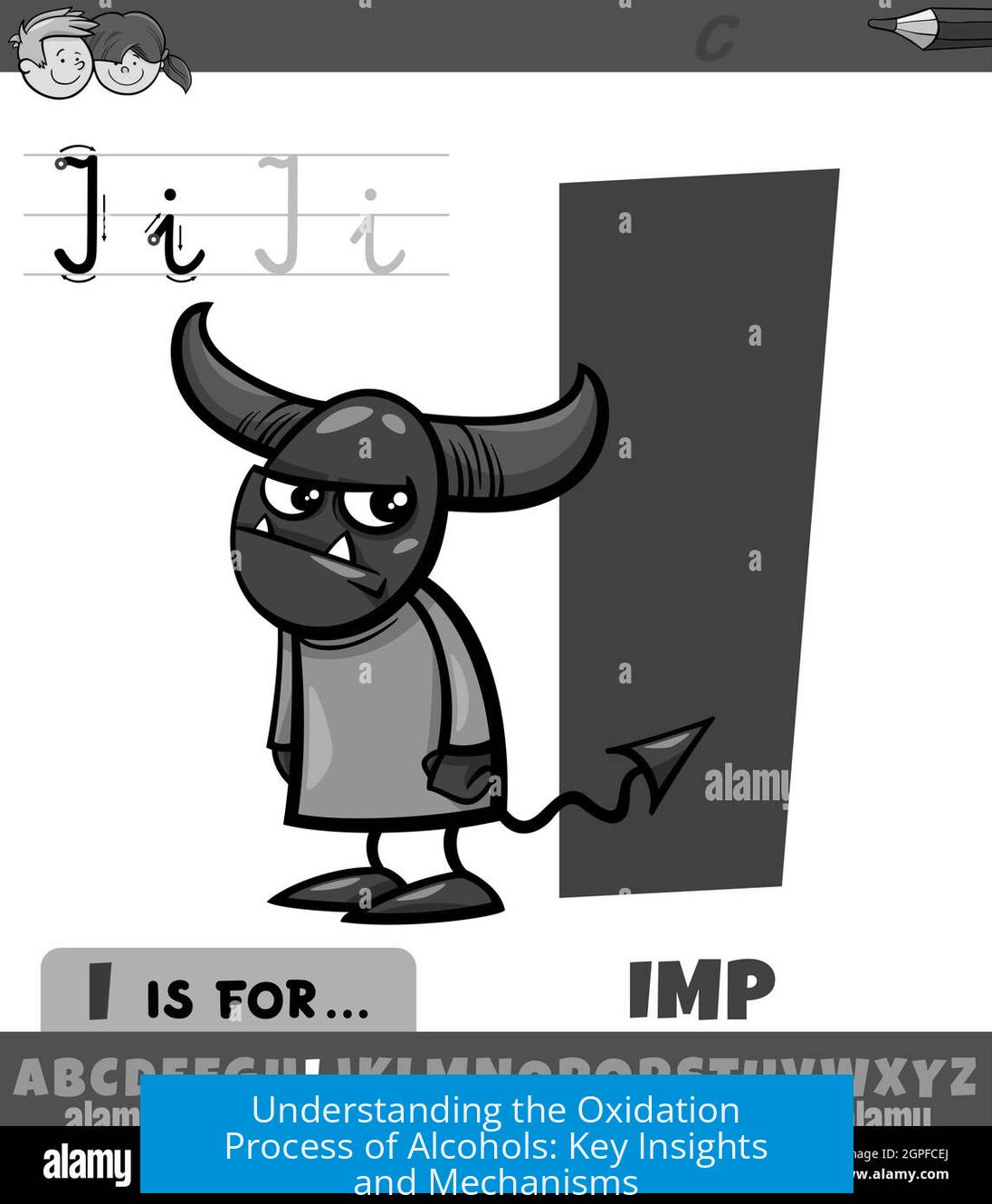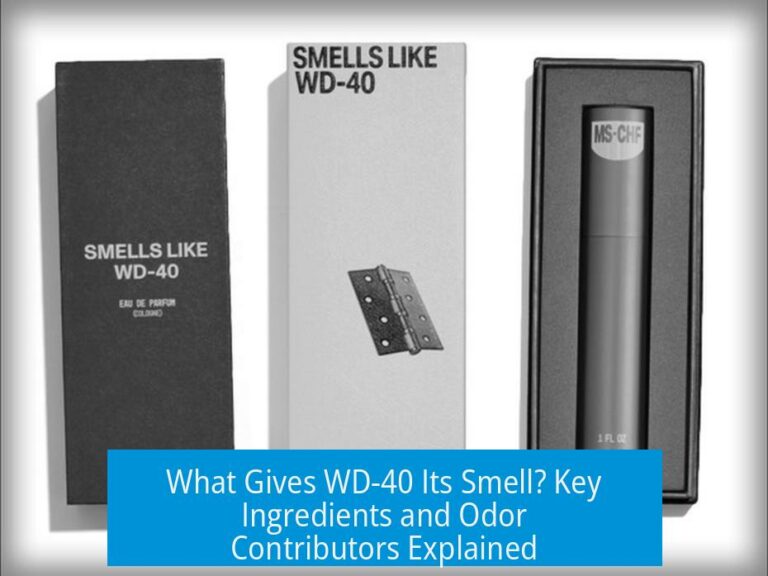Understanding Oxidation of Alcohols
Oxidation of alcohols involves an increase in the number of bonds between carbon and oxygen. This process progresses as ethanol transforms into ethanal and then into ethanoic acid, with each step increasing the carbon’s oxidation state and oxygen bonding.
What Does Oxidation Mean in Alcohols?
Oxidation here means adding more oxygen bonds to the carbon atom that is attached to the hydroxyl (–OH) group. The sequence is:
- Ethane (C2H6) – zero bonds to oxygen
- Ethanol (C2H5OH) – one bond to oxygen
- Ethanal (acetaldehyde, CH3CHO) – two bonds to oxygen
- Ethanoic acid (acetic acid, CH3COOH) – three bonds to oxygen
As we move through this series, carbon’s oxidation state increases from -3 in ethane, to -2 in ethanol, to -1 in ethanal, and finally to 0 in ethanoic acid. This shift corresponds to carbon losing electrons as it forms stronger bonds with oxygen.
Mechanism: From Ethanol to Ethanal
The key event is the loss of hydrogen atoms from the carbon and oxygen atoms in ethanol. This step is called dehydrogenation. Two hydrogens are removed: one from the carbon and one from the hydroxyl group. The carbon atom then forms a new double bond to oxygen.
Because oxygen is more electronegative than hydrogen, the electrons are pulled away from carbon, effectively increasing its oxidation state. This electron withdrawal is why oxidation is described as “losing electrons” in this context.
Clarifying Oxidation Definitions
Oxidation is often said to be the “gain of oxygen” or “loss of electrons.” In alcohol oxidation, the carbon atom gains oxygen bonds and loses electrons formally. Meanwhile, oxygen is reduced because it accepts these electrons.
Understanding this electron flow helps clarify why ethanol’s conversion to ethanal qualifies as oxidation. The actual reaction mechanisms depend on conditions. For instance, one way to conceptualize ethanol turning into ethanal is by removal of water (H2O) during the reaction.
Electron Transfer During Oxidation
- Oxygen atoms take electrons, representing a formal charge of 2-.
- Hydrogen atoms provide electrons, formally carrying +1 charge.
- The shift in electrons results in the carbon becoming more positively oxidized.
This electron flow clarifies the changes in oxidation states and why oxygen’s presence dictates oxidation.
Key Takeaways
- Oxidation of alcohols means increasing carbon-oxygen bonds and carbon oxidation state.
- From ethanol to ethanal, oxidation involves losing hydrogens and forming a double bond to oxygen.
- Electron transfer shows carbon losing electrons while oxygen gains electrons.
- Oxidation definitions focus on formal electron and bond changes rather than simple oxygen gain only.
- Reaction mechanisms vary; some describe oxidation as water removal (dehydration) during conversion.
What exactly happens to oxygen bonds during oxidation of alcohols?
Oxidation means the carbon forms more bonds to oxygen. For example, ethanol has one oxygen bond, ethanal has two, and ethanoic acid has three. The bond count rises as oxidation proceeds.
How does the oxidation state of carbon change in alcohol oxidation?
The oxidation state of carbon increases. In ethanol, it’s -2. In ethanal, it moves to -1, and in ethanoic acid, it reaches 0. This shift reflects the carbon losing electrons formally.
Why is oxidation from ethanol to ethanal confusing compared to ethanol to ethanoic acid?
This step often involves removing water (H₂O). The mechanism can vary based on conditions. Drawing out the molecules and focusing on water loss helps clarify the process.
How does the electron flow work in alcohol oxidation?
Oxygen gains electrons and hydrogen loses them. Oxygen pulls electrons away because it is more electronegative, leading to carbon’s formal oxidation.
Is oxidation just about adding oxygen or also losing electrons?
Both happen. Oxidation means gaining oxygen bonds and formally losing electrons. Carbon oxidizes while oxygen reduces in this process.





Leave a Comment